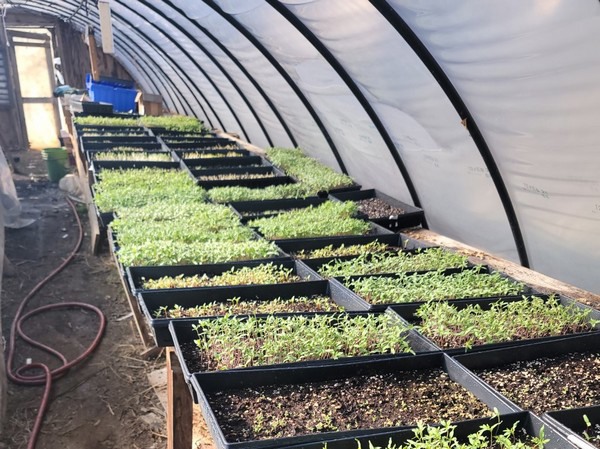Mark Woods' addendum to the famous saying, 'When life gives you lemons, make lemonade,' will tell you all you need to know about the farmer's attitude, even during hard times.
With 80 acres, most of which are outdoor, Woods Farms in Virginia, Georgia, grows with the season, with apples in the fall and peaches in the summer. Normally, during this time of year, the plants head into the greenhouse for some much-needed warmth. However, that warmth is sorely missing this year as the high fuel prices make things more difficult for growers.
"We normally start growing in the greenhouses earlier, but this year we will only begin heating the greenhouses at the end of February, beginning of March, since the fuel prices have nearly tripled compared to three years ago," says Mark Woods.

Their greenhouse crops, such as tomato, broccoli, cabbage, peppers, cucumber, and squash, will have to wait, and because of this delay, the farm needs to compensate for the loss in growing time with fertilizer in order to make it by harvest time. Hoping their crops will grow big enough in time.
"Fuel, labor, fertilizer, and electricity, everything costs more these days. A small farmer can only eat so much of the extra cost before having to pass it along to the consumer." And that's a fine line, according to Mark, because people will drive to places further away if it means they can buy their products for cheaper. The people that normally buy local products also do this to save on traveling costs and because the farm can compete with the large retailers, but in this scenario, that is becoming increasingly difficult for them.
As a solution, Mark will place an outdoor woodstove to heat his greenhouses. "There is enough waste wood around to burn and heat the greenhouses with. It's a big expense upfront, but it can save us a lot on fuel consumption in the long run."
For more information:
Mark Woods
Woods Farm
2921 Naff Rd, Boones Mill, VA
24065, United States
Tel.: +1 540-334-1719
Email: [email protected]
Facebook. Woods-Farms
